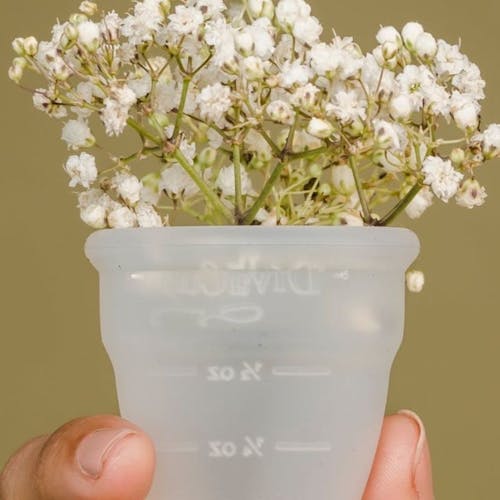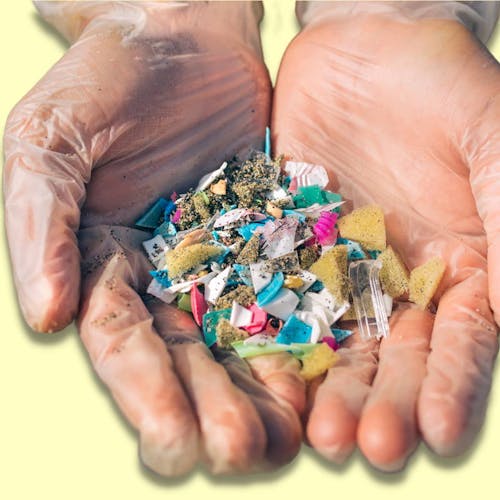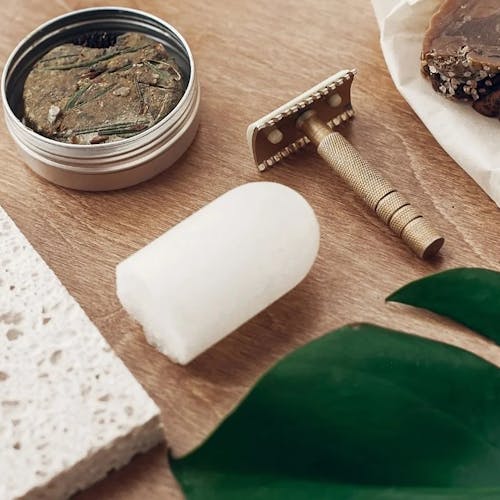This website uses cookies to enhance the user experience. By using Yoppie you are agreeing to our use of cookies.
Planet Friendly Periods: Disposing Of Period Products In An Eco-Conscious Way
Written by Yoppie
01 Jul 2020
Why period product disposal is important
Choose organic cotton products that decompose faster
Switch to non-applicator tampons
Recycle your wrappers and packaging
Donate your excess
So… are you a flusher or a binner? Chances are you’ve never really had the conversation. When we start having periods as teenagers, we tend to do whatever causes the least embarrassment and stick with this method. But if you’re a flusher, it’s time to switch things up...
Let us start by saying, we’re not here to flush-shame you. The problem is that we don’t talk about periods enough in society to know what’s right and wrong when it comes to the disposal of products.
Martha Silcott, founder of Fab Little Bag (a discreet biodegradable bag for used period products), surveyed hundreds of women about how they get rid of used tampons. She found that 40% were binners, and 60% were flushers. Some of the women she surveyed didn’t even know that flushing was possible, which shows how little we discuss this monthly task with others.
Half of UK women admit to flushing their tampons, which amounts to 1.4 million pads and 2.5 million tampons being flushed every single day. Since name-brand pads have been found to contain as much plastic as four carrier bags, this is a huge problem for our planet.
Why period product disposal is important
Period products that have been flushed go on to contribute to the clogging of sewage systems and polluting of oceans. And that’s just the product itself. When you consider the packaging it comes in, you start to see that there’s more to worry about than just deciding whether you’re a flusher or a binner. In fact, according to the Women’s Environmental Network, an average of 4.8 pieces of menstrual waste (i.e. applicators, wrappers, etc.) are found per 100m of UK beach.
We think it’s time to make smarter choices about how we dispose of our used period products. If you’re not ready to switch to zero-waste products like menstrual cups, here are some other ways you can do your part for the environment every month.
Choose organic cotton products that decompose faster
Did you know that one tampon takes longer to decompose than the average woman’s lifespan? A worrying thought when you consider how many we discard every month. By switching to organic cotton, you can drastically reduce the amount of time your period products stick around after disposal.
Cotton naturally breaks down much faster than plastic, plus it is produced without toxic pesticides which is always an environmental win! By switching to organic cotton, like the Yoppie range, binning your used period products becomes a lot more planet-friendly.
Switch to non-applicator tampons
Tampon applicators are one of the worst culprits and can take up to 500 years to decompose. Unfortunately, if you thought you could recycle them since they’re made of plastic, you’d be wrong - they have been in contact with blood which is considered human waste, so sadly they cannot be recycled.
The next best thing is to look for tampons that come with cardboard applicators, but if you really want to make a change for the better, try out non-applicator tampons to avoid any additional waste. Yoppie’s organic tampons offer an applicator-free option for exactly this reason.
Recycle your wrappers and packaging
Another unfortunate leftover from our monthly periods is the wrappers and cardboard packaging. Thankfully, cartons can be recycled with paper, however, the wrappers and liner backing strips pose a different problem as they cannot be recycled.
If you want to avoid sending all those wrappers to landfill, you may want to look into eco-bricking. Eco-bricks are an innovative and simple idea, and though they have not yet gained much popularity in the UK, they could prove to be a useful solution to your tampon wrapper problem.
All you need is an old plastic bottle; collect your used wrappers, and instead of throwing them away, shove them inside. It could take months, even years for you to fill the whole bottle, and you can continue to press them down to create more space. The Global Ecobrick Alliance uses them as bricks for eco-friendly building projects and suggests ways to use collected eco-bricks to build useful things like garden furniture.
Donate your excess
Sometimes we bulk-buy period products but don’t use them due to, for example, purchasing the wrong absorbency or a brand we don’t like. Instead of throwing them away, consider donating unopened packages of period products to your local food bank or shelter. These are always incredibly useful for the needy, so donating them where possible is a great move in your community, as well as being better for the environment.
If you find any innovative ways to dispose of your used period products in an eco-friendly way, we’d love to know! Tell us over on Instagram @itsyoppie. Minimise your waste by getting just what you need, when you need it: our personalised period subscription box can get all of your menstrual care needs delivered easily and regularly through your letterbox, all in eco-friendly recyclable packaging That's one less thing to worry about!
Section jump
Back to top
Subscribe To Our Newsletter
YOPPIE





© 2026 Yoppie is a registered trademark of Phlo Technologies Ltd.
Yoppie's supplements are not a substitute for a varied diet and healthy lifestyle and are not intended to diagnose, treat, or cure any disease. If you are pregnant, breastfeeding, have a medical condition or are under medical supervision, please consult with your doctor before taking any of our products.






